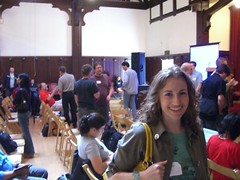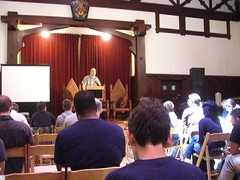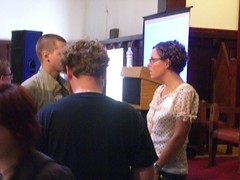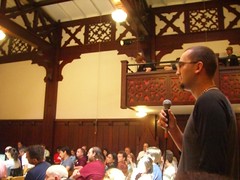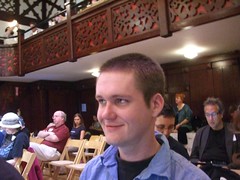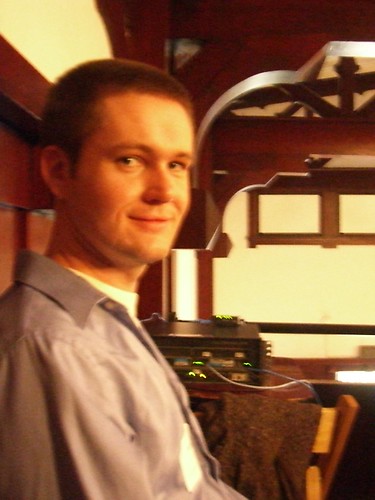It seems that WordCamp 2007, an open source software gathering, is no refuge from intellectual property thuggery. Watch this movie as Andy Skelton fairly exudes greed as he lunges to claim and monetize other people’s recordings after what was billed on the schedule as a mere “musical interlude.” Actually, I would have included the actual song in the movie too without a second thought–but it sucked.
The behavior on display is strangely grandiose in this case (e.g. the joke about whether it’s a “trillion-dollar song” or the belief that people want to feature bad acoustic frat music on their blog), but I’m afraid that it nonetheless could have a real chilling effect on the free exchange of ideas and information about such events.
The key quote from Andy Skelton from the movie:
“I just want a piece of..of your pie!”
To which I say–never!

